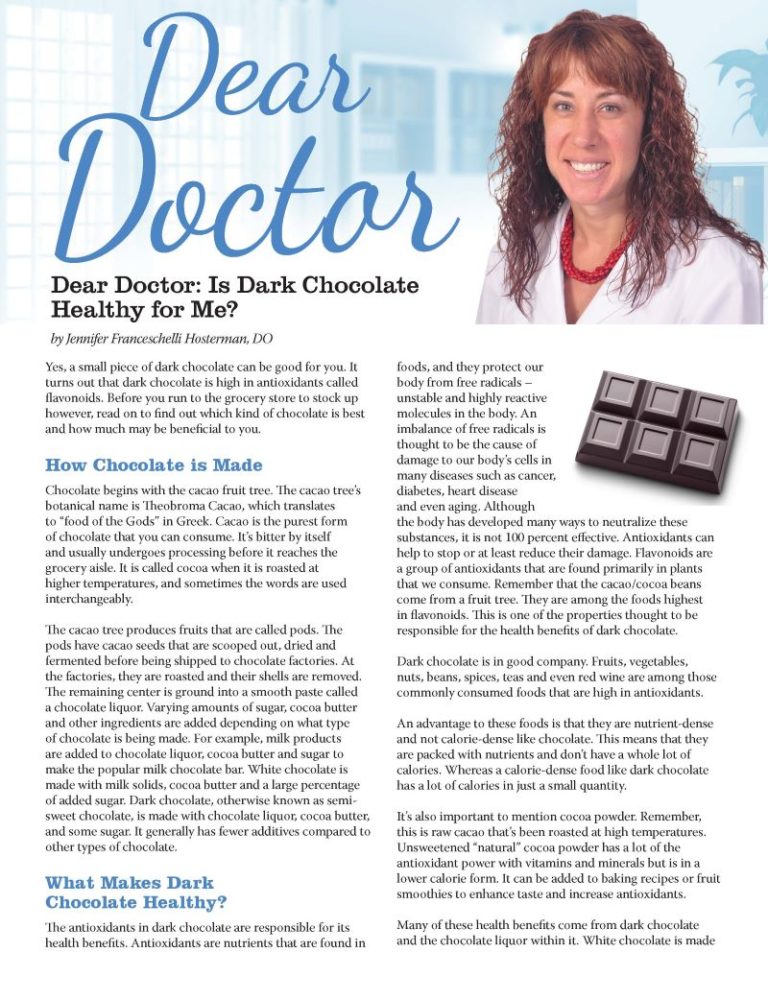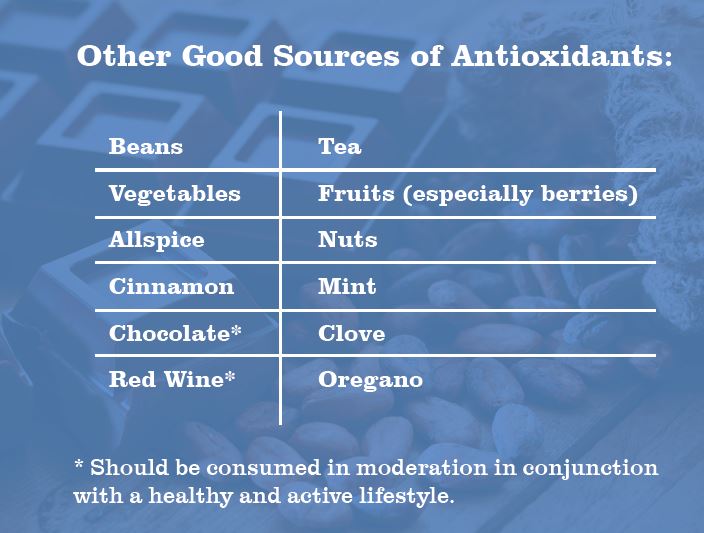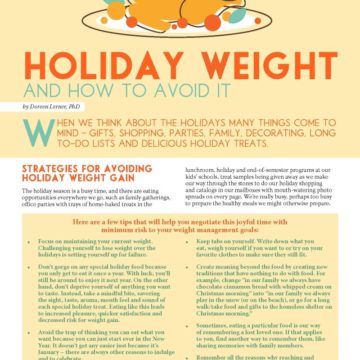Dear Doctor: Is Dark Chocolate Healthy for Me?


by Jennifer Franceschelli Hosterman, DO
Fall 2015
Yes, a small piece of dark chocolate can be good for you. It turns out that dark chocolate is high in antioxidants called flavonoids. Before you run to the grocery store to stock up however, read on to find out which kind of chocolate is best and how much may be beneficial to you.
How Chocolate is Made
Chocolate begins with the cacao fruit tree. The cacao tree’s botanical name is Theobroma Cacao, which translates to “food of the Gods” in Greek. Cacao is the purest form of chocolate that you can consume. It’s bitter by itself and usually undergoes processing before it reaches the grocery aisle. It is called cocoa when it is roasted at higher temperatures, and sometimes the words are used interchangeably.
The cacao tree produces fruits that are called pods. The pods have cacao seeds that are scooped out, dried and fermented before being shipped to chocolate factories. At the factories, they are roasted and their shells are removed. The remaining center is ground into a smooth paste called a chocolate liquor. Varying amounts of sugar, cocoa butter and other ingredients are added depending on what type of chocolate is being made. For example, milk products are added to chocolate liquor, cocoa butter and sugar to make the popular milk chocolate bar. White chocolate is made with milk solids, cocoa butter and a large percentage of added sugar. Dark chocolate, otherwise known as semi-sweet chocolate, is made with chocolate liquor, cocoa butter, and some sugar. It generally has fewer additives compared to other types of chocolate.

What Makes Dark Chocolate Healthy?
The antioxidants in dark chocolate are responsible for its health benefits. Antioxidants are nutrients that are found in foods, and they protect our body from free radicals – unstable and highly reactive molecules in the body. An imbalance of free radicals is thought to be the cause of damage to our body’s cells in many diseases such as cancer, diabetes, heart disease and even aging. Although the body has developed many ways to neutralize these substances, it is not 100 percent effective. Antioxidants can help to stop or at least reduce their damage. Flavonoids are a group of antioxidants that are found primarily in plants that we consume. Remember that the cacao/cocoa beans come from a fruit tree. They are among the foods highest in flavonoids. This is one of the properties thought to be responsible for the health benefits of dark chocolate. Dark chocolate is in good company. Fruits, vegetables, nuts, beans, spices, teas and even red wine are among those commonly consumed foods that are high in antioxidants.
An advantage to these foods is that they are nutrient-dense and not calorie-dense like chocolate. This means that they are packed with nutrients and don’t have a whole lot of calories. Whereas a calorie-dense food like dark chocolate has a lot of calories in just a small quantity.
It’s also important to mention cocoa powder. Remember, this is raw cacao that’s been roasted at high temperatures. Unsweetened “natural” cocoa powder has a lot of the antioxidant power with vitamins and minerals but is in a lower calorie form. It can be added to baking recipes or fruit smoothies to enhance taste and increase antioxidants.
Many of these health benefits come from dark chocolate and the chocolate liquor within it. White chocolate is made of cocoa butter but not cocoa solids, and it’s loaded with sugar. White chocolate has no chocolate liquor in it, and therefore, lacks the antioxidant content. Milk chocolate does have some chocolate liquor in it, but dark chocolate has more than twice the amount. More chocolate liquor means more antioxidants, making dark chocolate the healthier pick.

What Should I Look for on the Label?
You may see the percent of cacao on the label of your favorite chocolate bar. This refers to the total percentage of ingredients that come from the cacao or cocoa bean. Higher percentage of cacao in a chocolate bar means there is less room for milk, sugar and other additives. This leads to a taste that can be more astringent or bitter, but also means that you are getting a less processed chocolate. Less processing protects the antioxidant potential. Dark chocolate generally has a higher percent of cacao compared to other chocolates. Look for a package that has the highest percentage of cacao to get the most benefit.
You may be worried about the fat content in chocolate. It is true that chocolate is high in saturated fat but there is some good news too — about one-third of the total fat is from stearic acid. This type of saturated fat does not raise your cholesterol levels. However, there are nine calories for every one gram of fat. This is compared to carbohydrates and proteins, which have about half of the calories per gram. So, it is still important to be mindful of your total calories for the day.
Indulgers Beware.
After reading about all the health benefits of dark chocolate, you may think it’s okay to go to the store now to stock up. However, moderation is still the key here. Dark chocolate is likely to have many health benefits, but it can lead to extra calories and weight gain if it is eaten in excess. Dark chocolate is quite calorie-dense.
On average, one regular-sized chocolate bar is about 200 calories. It would take about 55 minutes of brisk walking to burn off those calories. Weight gain can lead to obesity and increase your risk of cardiovascular disease, diabetes, high blood pressure and high cholesterol, and this would negate any of the health advantages from eating chocolate. Therefore, you’ll want to limit chocolate intake to a small portion to get the health effects without the increase in pants size.
Tips to Avoid Overindulging:
- Enjoy the experience of eating — avoid interruptions of televisions or cellphones
- Savor the taste
- Plan ahead — buy individually wrapped pieces of chocolate
- Know yourself — limit the amount of chocolate that is readily available to you
- Keep track of calories — If you bite it, write it down
What are some of the health benefits?
You can imagine that many people are excited to hear that chocolate could be healthy for them. Because of this, there have been many studies to try to figure out if this is really true and to see how it all works. Although the exact mechanisms are still unclear, there has been evidence to show that cacao/cocoa products may have the following effects, when combined with a balanced diet and active lifestyle:
- Lower blood pressure
- Lower LDL or “bad” cholesterol and increase HDL or “good” cholesterol
- Reduced risk of cardiovascular disease and improved cardiovascular function
- Reduced risk of stroke
- Reduced risk of blood clots by improving platelet reactivity
- Improved cognitive function and prevention of memory decline
- Improved mood through boosting serotonin levels
- Protection from obesity and type 2 diabetes
Conclusion
To get the greatest benefit of chocolate without the added calories, limit consumption to one ounce a few times per week. Supplement your diet with nutrient-dense foods like berries or a glass of unsweetened tea to add even more antioxidant power. Combine this with a healthy diet and exercise to achieve a healthier you.
About the Author:
Jennifer Franceschelli Hosterman, DO, is a board certified internal medicine and pediatric physician who specializes in nutrition and obesity medicine at Geisinger Medical Center. She is also the Medical Director of Camp ENERGY, which is a healthy lifestyle camp for adolescents. She earned her bachelor’s degree in cellular and molecular biology at West Chester University and completed medical school at Philadelphia College of Osteopathic Medicine. She is a strong proponent of the multi-disciplinary and family approach in the prevention and treatment of obesity.
by Sarah Muntel, RD Spring 2024 Spring has sprung, bringing sunnier and warmer days! For many, this…
Read Articleby Sarah Ro, MD; and Young Whang, MD, PhD Fall 2023 Mary, a postmenopausal woman with a…
Read Articleby Rachel Engelhart, RD; Kelly Donahue, PhD; and Renu Mansukhani, MD Summer 2023 Welcome to the first…
Read Article









